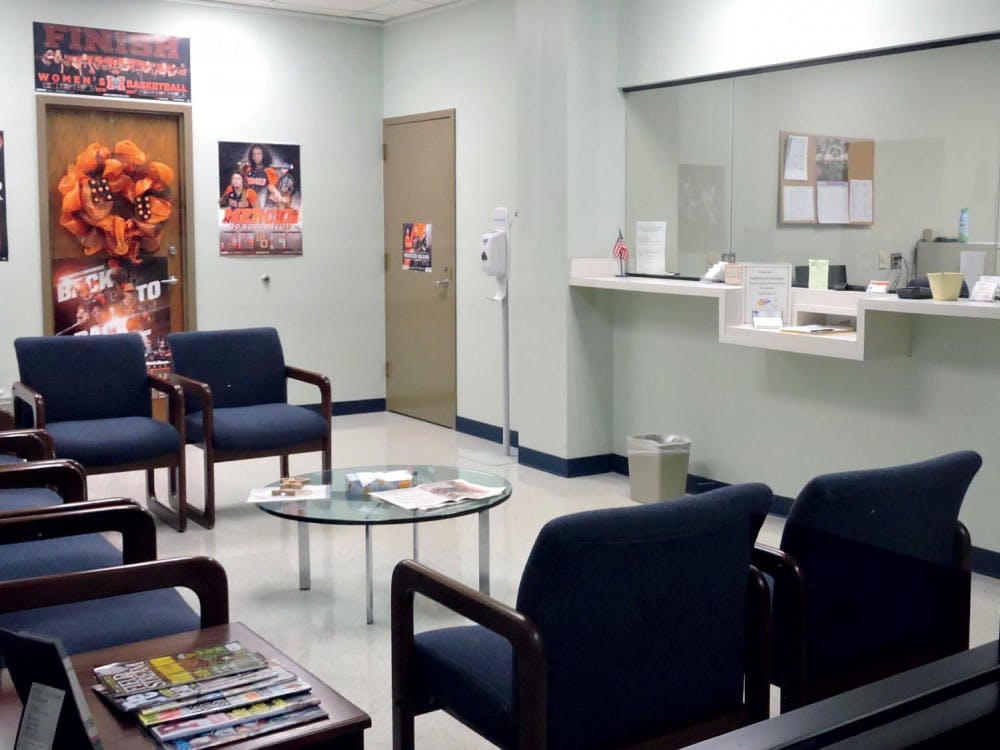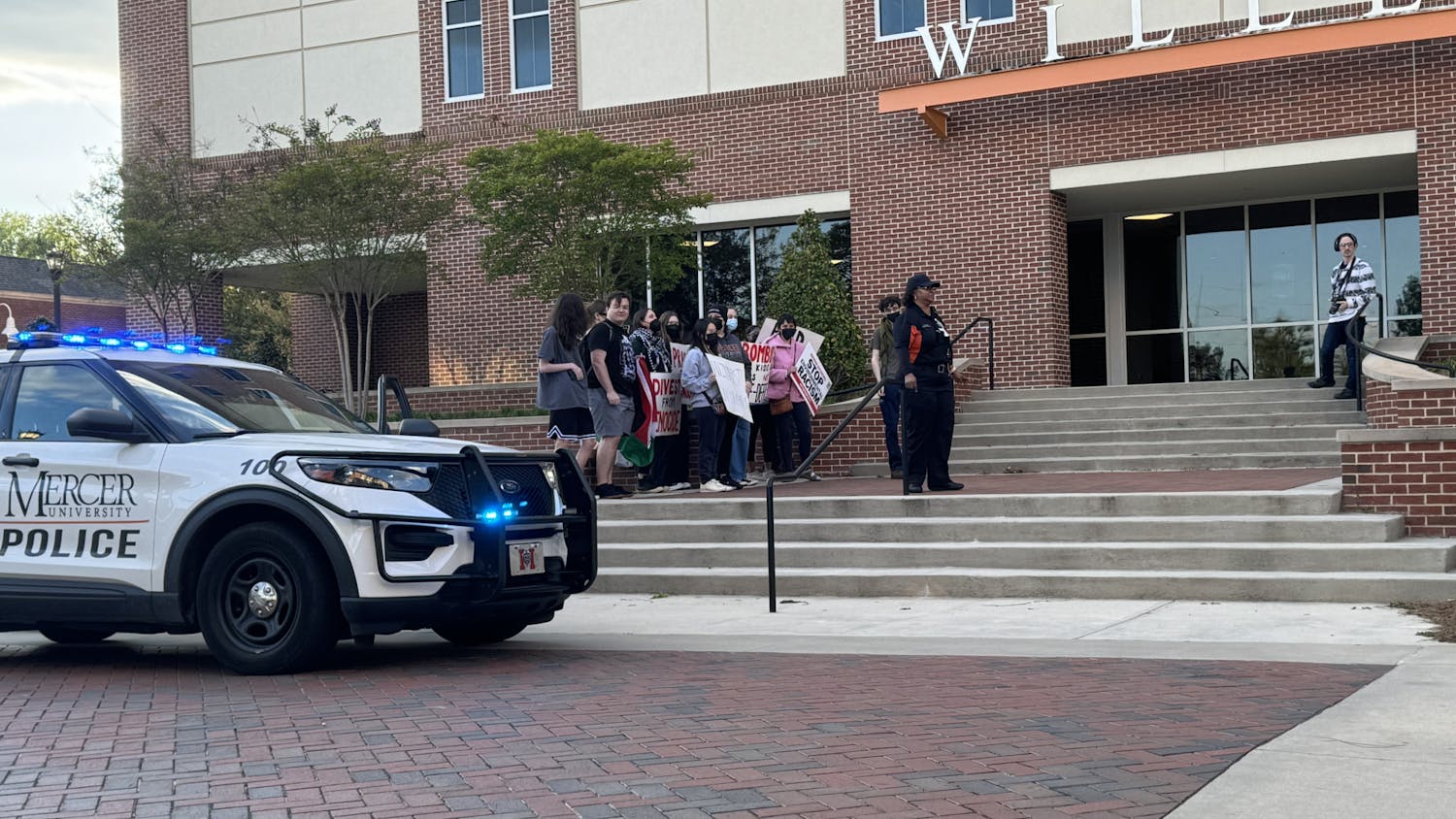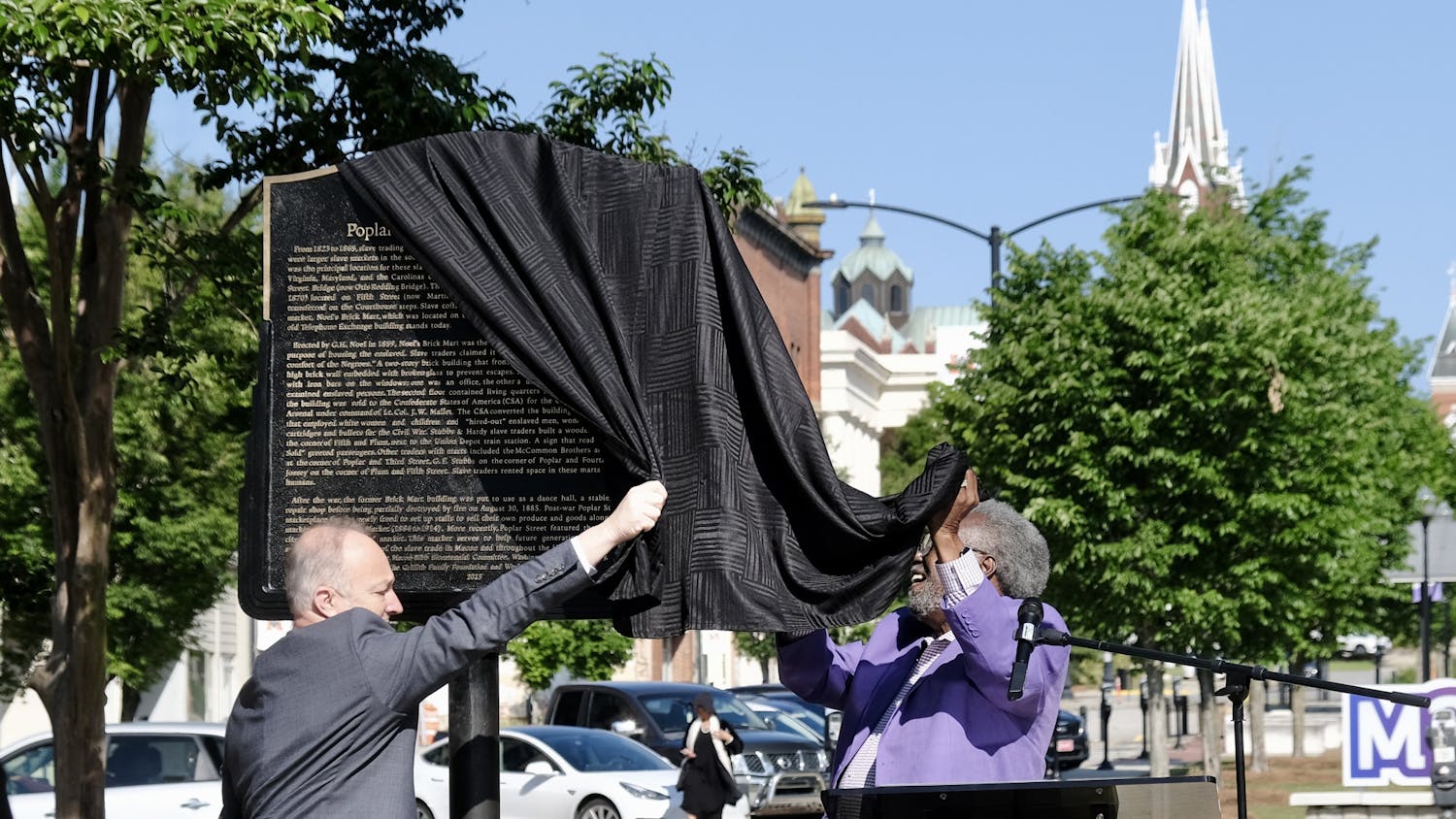Mercer University’s Student Health Center (SHC) still provides various women’s health services even though there is no longer an OB-GYN working at the clinic. Most of these services are now performed by Kacie Milholen.
Milholen holds a Master’s of Science in Nursing (MSN) and is an Advanced Practice Registered Nurse (APRN) and a Certified Family Nurse Practitioner (FNP-C). This is her second year serving in the SHC.
Milholen said in a written statement that the SHC offers “women’s health exams, which may include a pelvic exam, Pap smear, breast exam, sexually transmitted infection (STI) testing, pregnancy testing, and contraceptive (birth control) counseling.”
She wrote that most of the gynecological services that she performs on campus involve abnormal vaginal discharge, urinary tract infections, contraceptives, menstruation issues, pregnancy testing and STI screenings. Pregnant students are referred to obstetricians.
 “The majority of our female students are in their ‘young adulthood’ years in which healthcare is focused on health maintenance and promotion with an emphasis on gynecological and reproductive health,” Milholen wrote.
“The majority of our female students are in their ‘young adulthood’ years in which healthcare is focused on health maintenance and promotion with an emphasis on gynecological and reproductive health,” Milholen wrote.
Dr. Keisha Callins, M.D. served as part-time OB-GYN and women’s health consultant for the SHC from January to September 2017. Now she works as a clinic assistant professor in the Mercer University School of Medicine’s Department of Community Medicine and as an obstetrician and gynecologist with Community Health Care Systems.
Callins said over the phone that she did not see a large number of patients for women’s health issues because most of the students who went to the clinic while she worked there did so to treat an illness or injury.
She said that she left her official position at the SHC because she is a National Health Service Corps Scholar. She wrote in an email that this is a federal scholarship program providing financial assistance to doctors who practice in rural or underserved communities. Callins said that last year, she found it difficult to balance her commitment to Mercer with her clinical requirement.
Callins now practices in medically underserved areas of Jones and Twiggs Counties, where she said there is no other OB-GYN.
Milholen wrote in her statement that “services have not changed since Dr. Callins is currently not working here as often.”
She said she sees many students for women’s health issues, but believes that “most female students are unaware of the women’s services offered.”
Callins said she wants to emphasize the importance of reproductive and sexual health among college-aged women.
“In order to be effective,” she said, students need balanced “physical, spiritual and emotional health.”
She said that women’s health and experiences are often downplayed or ignored, which, combined with a college lifestyle, can make that balance difficult to achieve.
Callins hopes that more students will take advantage of the women’s services at the clinic. She said that the SHC is convenient because students can use their University insurance plan, and that the on-campus location is useful for all students, especially international students and others without transportation.
Women’s health services will still be offered at Student Health Center after departure of OB/GYN

Accessible via appointment, the Health Center at Mercer is located in the Medical School at Mercer University.




